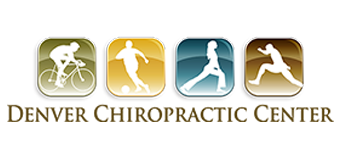Training for race season 2016 continues. Yesterday, the thermometer at hit 96 just as I was leaving to ride.Here I am taking a break from laps of the Greenwood Village Bike Park.

I also wanted to let you know that we are back in the office and ready to help you. If something’s hurting, or you feel like you’re out of alignment, just call us @ 303.300.0424 and we will get you in!
Here’s this week’s 1-Page Health News.
Health Alert: Air Pollution Can Make Blood Pressure Soar.
A review of 17 studies from around the world has found a link between dangerous blood pressure and air pollutants, such as vehicle exhaust, coal burning, and airborne dirt or dust. The researchers explain that just a few days of increased air pollution can lead to more emergency hospital visits due to temporary spikes in blood pressure. Over the long term, those living with constant high levels of air pollution may end up with chronically high blood pressure. The findings are of great concern as high blood pressure is a key risk factor for stroke and heart disease, the number one cause of death worldwide. Dr. Gregg Fonarow, a professor of cardiology at the University of California, Los Angeles comments, “These findings suggest that strategies to effectively reduce exposure to air pollution may have cardiovascular benefits.”
Hypertension, May 2016
Diet: Healthy Fats Don’t Boost Weight.
According to new report, consuming a diet that includes healthy fats such as olive oil and nuts isn’t likely to cause weight gain. The study included more than 7,400 women and men who ate one of three meal plans: an unrestricted-calorie Mediterranean diet rich in olive oil; an unrestricted-calorie Mediterranean diet rich in nuts; or a low-fat diet intended to avoid all dietary fat. After five years, the researchers found that a diet with little fat did not result in more weight loss, but it did result in a greater likelihood of increased waist circumference, which is a risk factor for chronic diseases like type 2 diabetes. In a commentary that accompanied the study Dr. Dariush Mozaffarian notes, “Dietary guidelines should be revised to lay to rest the outdated, arbitrary limits on total fat consumption. Calorie-obsessed caveats and warnings about healthier, higher-fat choices such as nuts, phenolic-rich vegetable oils, yogurt, and even perhaps cheese, should also be dropped.”
The Lancet Diabetes & Endocrinology, June 2016
Exercise: Find Time for Fitness.
The American Council on Exercise offers the following advice about how to squeeze in a few minutes of exercise during the day: take a walk around the block when you get home from work, park your car a little further from your office building, take the stairs instead of the elevator, walk for ten minutes without stopping when shopping, clean your home, work in the yard, exercise during your lunch or coffee break, and ask a co-worker to join you for a quick walk.
American Council on Exercise, May 2016
Chiropractic: Neck Trauma Linked to Jaw Pain!
In this study, researchers followed up with individuals who had been seen in an emergency room for neck pain resulting from a car accident and found they were up to six times more likely to report jaw pain than their peers who had no history of neck trauma. This finding adds to previous research indicating a link between cervical trauma or injury and the development of orofacial pain.
Journal of Dental Research, June 2016
Wellness/Prevention: Drink Fewer Sugary Soft Drinks.
Consuming more than five sugar-sweetened carbonated beverages on a weekly basis may increase an individual’s risk for a heart attack. Researchers measured the coronary artery calcium levels of over 22,000 men and found those who consumed more than five sugary soft drinks per week were 70% more likely to have plaque build-up in their arteries, which is an early indicator for coronary heard disease.
American Heart Journal, July 2016




